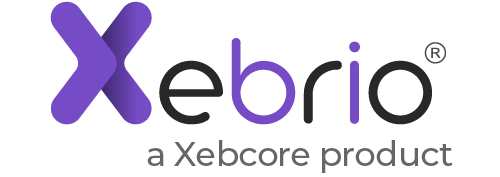It is said that making new year’s resolutions dates back to Babylonian times. However, these resolutions are famously abandoned by the 17th of January. Taking a closer look into the domain of project management, we all know that goal-setting is not really a once-a-year task. Goals are set every day, sometimes more than once a day! So, it makes sense for project managers to set new year goals strategically and organically, backed by research and real-life examples, of course.
At this point, it is also worth noting that the role of project managers has evolved to a drastic extent over the last couple of years. Numerous factors are at play and have driven this behavioral change. Let’s jump in to understand what they are.
What are the Key Factors Driving Project Management in 2022?
An ever-increasing demand for project managers:
By 2027, the project management-oriented labor force is expected to grow by 22 million jobs.
Dynamic shifts in the core job of a project manager:
From merely tracking project delivery to accommodating newer trends in project management, technology, and understanding how millennials work – the role of a project manager has evolved to encompass social, personal, technological, psychological, and skill-oriented factors.
As an example, consider this – by 2025, millennials will make up for 75% of the labor force and will demand greater transparency, work fulfillment, and accountability – as opposed to better salary and incentives – as prime requirements from businesses. Understanding subtle yet strategic changes such as these can propel you towards becoming an exemplary project leader.
Changes in the way project teams work:
Remote working is not just a future trend, but the reality. More and more people are opting for remote work these days. According to a survey by FlexJobs, 3 out of 4 workers would stay with their current employer if they could work flexible hours and the number of people who work from home has increased by 140% since 2005.

How Can Today’s Project Managers Cope With Changing Trends?
Today’s project managers need to be ready to face these modern challenges. Or to quote comedian Dave Chappelle and remind you of a famous internet meme, “Modern problems require modern solutions.” Allow us to elaborate – project managers need to equip themselves with solutions that will scale with the changing landscape and new challenges cropping up in the field of project management.
Modern project managers need to adopt suitable management techniques that accommodate the new ways of working. For example, if you have remote teams, make sure that you connect with them enough to be as comfortable as you are with your co-located team.
To make new-age hybrid and remote teams the most productive and build a thriving culture for distributed teams, allow communication to flow easily and in all directions. Provide them with all the tools, technology, and comfort they need to make their work easier and manageable, and keep an open door and an open mind. Strive to maintain suitable company culture – one that makes all levels of personnel happy.
Jim Benson, author of ‘Personal Kanban’ says, “Better moods = better performance. Hostile or even boring working environments are not sustainable. It results in poor work product and attrition”
Invest in new-age tools such as team collaboration and communication software that will help you work together in real-time.
Better yet, go for an entire project management suite so that you can keep track of exactly what tasks your teams are up to, how further have they progressed, or what changes and additions your clients want.
Good tools have support for everything; from requirements management to deployment.
But to see things happen, you’ll have to sit down and plan out some resolutions. We’ll talk about setting custom goals and resolutions the SMART way later, but let us start with some that we think project managers of all kinds and all over the world must absolutely make.
What are the New Year Resolutions for 2022 for the Modern Project Manager?

“The New Year gives us time and a goal date to prepare for the change, to fire up for the shifts we plan to make.” – John Duffy, author
Ever wondered why everyone starts posting an infinite list of new year resolutions on their social media post-Christmas?
Nona Jordan, a business coach by profession, explains: “The beginning of the year offers a fresh start and a clean slate.” Plus, it allows for self-improvement which acts as a natural motivator. Additionally, in a study, data demonstrated that the mere act of goal-setting helped 46 percent of individuals achieve goals more successfully as compared to the rest who didn’t create resolutions.
Then, there are wide-ranging benefits of making new year resolutions (Read: keeps us motivated, energized) that need to be considered. For the sake of continuity, we won’t delve exactly into that and we’ll move on to three specifics goal-setting areas, namely:
A. Project Management Resolutions
Did you know that it can take up to 23 minutes for a person to get back to work once interrupted? Add to the mix, a person spending two-plus hours each day reading and answering emails, and you’ve got a real problem at hand. This is precisely why setting project management-related resolutions well before time for the whole year can serve as a solid foundation for successful projects all year long. Some of the most compelling trends you can embrace and set goals for in 2022 include:
Limiting the checklist:
“The checklist cannot be lengthy. A rule of thumb some use is to keep it to between five and nine items, which is the limit of working memory.” – Atul Gawande, The Checklist Manifesto: How to Get Things Right
Focusing on improving your decision-making skills:
Engaging in efforts such as doing a cost-benefit analysis, SWOT analysis, etc. can help you make speedy, informed decisions.
Working towards enhancing your emotional intelligence:
There’s a treasure trove of information relating to EQ – from invigorating TED Talks and informative books to engaging podcasts and descriptive blogs. It is also worth noting that having a high EQ addresses key issues that come with project management such as conflict management, inability to understand team members, etc. If you’re a beginner, read our favorite book, ‘Emotional Intelligence’ by Daniel Goleman, to understand this concept better.
B. Leadership & Team Management Resolutions
Improving retrospective sessions:
Setting a rock-solid team in place and working towards your leadership goals can be the best thing for your organization yet. Author Jim Collins explains: “Great leadership that creates great teams that are engaged in great practices lead to successful endeavors again and again.”
He further adds: “Great leaders are not perfect by any stretch, but almost across the board, the one trait they all have in common is that they inspire their people to greatness and empower them to deliver.”
In addition, Ben Aston, founder of website ‘The Digital Project Manager’, talks about how you can become a better leader and understand the specific factors behind successful projects.
He says; “This starts by having a clear understanding of success – beyond cost, schedule and scope of a project, thinking more about project portfolio management and how to deliver on the strategic goals of our projects and demonstrate ROI. By better understanding success, we can then inspire, motivate, and lead the team with a clear unifying vision – we can help your team get hold of a vision and understand why they should care and how they can take ownership to be meaningfully involved.”
Makes so much sense, right?

C. Personal & Work-life Balance Resolutions
If you think achieving a healthy work-life balance will forever remain an elusive dream as a project manager, you’re not alone. This is where setting personal resolutions comes into play. Personal success has a trickling effect on your professional life as well. For instance, creating a ‘Vision Board’ that prioritizes your professional and personal needs helps tons.
Take Nona Jordan’s case. She is a life coach who creates a one or two-word theme every year and puts it in a forever visible place. A thematic example, she describes, is “Lean In,” where she focuses on “leaning into the good, the uncomfortable, and the scary.”
In terms of the work projects, you can chalk out the top-three priorities every 2-3 days, which works better than trying to tick off every checkbox on the list. Finally, creating ‘doable’ and ‘meaningful’ goals can inspire you to achieve more.
Why People Cannot Stick to New Year Resolutions and How You Can Avoid Their Mistakes
Get this – four out of five people will end up breaking their resolution, according to recent studies. At this point, you might be wondering why people struggle to keep resolutions? Harvard Health points out seven possible reasons that may strike a chord:
1. People don’t dream big when it comes to resolutions, which can leave them uninspired. Dream big. of course, but how exactly? Well, make sure that you don’t give up before you even start. You should aim to complete that mammoth project this year. Just make sure you set a detailed timeline and have a risk and change management plan for variable factors and scenarios that may derail your project.
2. People don’t break their big goals into ‘tiny, achievable’ chunks, leaving them overwhelmed and underconfident. In fact, research by Franklin Covey suggests that 40% of people end up breaking their resolutions as they have too much to do. Break up your project’s tasks into manageable parts, or milestone-oriented delivery if you want to really stick to project management lingo. You can use tools that will intelligently help you set and track all your project’s milestones.
3. People don’t take stock of ‘why’ they’re setting a new goal, making it impossible to take a hard left towards embracing any new change. Agreeably, most people create resolutions out of a ‘general desire’ rather than focusing on a specific goal. Or worse, they create resolutions based on someone else’s goals. Sure, taking stock of your competitors helps to aim better. But goal-setting needs to be motivated by something much deeper than that, something that comes intrinsically to you, and aligns with your current situation and future projections.
4. People don’t commit socially and are not answerable to anyone if they fail. You’ll know if you succeed, and you’ll know when you’re failing. But only you’ll know and you won’t get that extra nudge when you need it, or, you won’t want to live up to anyone’s expectations of your work. If a commitment or goal is enforced socially, you’re obligated to fulfil it. Thus, share goals with your team and make sure that you fulfil those together.

People don’t end up celebrating the small wins and don’t tend to learn from past mistakes. Celebrate key achievements in your project along the entire project lifecycle. Doing so gives boosts morale and provides you the much needed dose of encouragement needed to take goals to the next level. Similarly, if you feel like you’ve reached at a point where you won’t be able to fulfil your goal, make sure that you don’t give up on your goal and start anew, only this time recording lessons learned
So kick start this new year by reflecting upon the five points outlined above so that you can make (and keep) your resolutions. All year long.
Bonus – Tips on Setting “SMART,” Attainable Goals & Resolutions for 2020
Now let’s move on to the ‘custom goal-setting’ that we mentioned earlier.
‘SMART’ goals can be every project manager’s surefire home run. This popular management concept rests on the surmise that if goals are set with the right motivation, the right procedure, and for the right timeline, only then can they be achieved.
Coined in the journal, Management Review in 1981, “SMART” refers to an acronym that has emerged as a well-accepted guideline for developing goals. In its expanded form, SMART refers to:

S = Specific
Try answering your goal from the following standpoint: How crystal-clear and specific is your goal?
Think: “I want to complete [XYZ] project in two weeks with three resources at hand, starting Monday,” as opposed to “I want to complete three projects sometime next month.”
M = Measurable
Figure out different and accurate ways through which you can keep track of your progress.
Think: Keep a journal or make notes on an app daily about the project and personal progress, to help understand your status as opposed to reflecting in December 2022 about what happened in January 2022. John Duffy, the author of ‘The Available Parent: Radical Optimism in Raising Teens and Tweens’, talks about the right way to journal. He says: “Keep a journal of both your negative and positive thoughts throughout the day along with the behavior that followed. We typically find that positive, internal ‘self-talk’ drives positive behavior and that the opposite is true for negative self-talk. Then, replace negative thoughts with positive ones. Negative thoughts are rarely accurate and only serve to sabotage us.”
A = Attainable/Achievable
At this stage, understand whether or not you can achieve the goal?
Think: “I will take the team out for lunches every month for better bonding,” as opposed to “I will take the team out for lunch every alternate day” (which is practically impossible).
R = Realistic/Relevant
At this point, it is important to understand if the goal truly matters to you, whether you wish to achieve it for the right reasons, and whether it’ll stay relevant over the coming months.
Think: “I wish to build a team of trusting people that are driven and inspired to do their best” as opposed to “I will reinforce my beliefs on my team members so that we can work towards a unified goal.”
T = Timely
Finally, think of when you want to achieve the goal.
Think: “I will roll out this product at the end of the quarter, taking into account valid research, valuable inputs, etc.” as opposed to “I will launch the product before my competitor even at the cost of quantity and quality.”
Gearing up for 2022
“The new year stands before us, like a chapter in a book, waiting to be written. We can help write that story by setting goals.” – Melody Beattie
If there’s one thing you’d want to remember from this blog, let it be this: Making a habit out of your new year resolutions is the only successful way to retain – and master – your professional and personal goals. As Charles Duhigg, author of the best-selling book, ‘The Power of Habit’ aptly puts it: “If you’re building a habit, you’re planning for the next decade, not the next couple of months.”
So, start jotting down your 2022 project management resolutions, aiming to SMART-ly complete it by the end of this year.






0 Comments